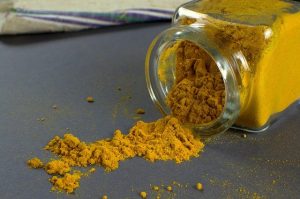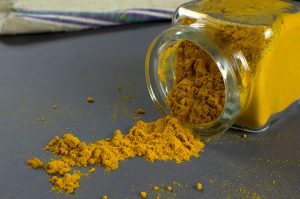Chennai: The Indian Institute of Technology, Madras (IITM) on Monday said its researchers have shown that the active principle from turmeric and curcumin can enhance cancer cell death caused by a protein called ‘TNF-Related Apoptosis-Inducing Ligand’ (TRAIL).
In a statement issued here IITM said there have been considerable efforts in developing therapeutic agents that trigger apoptotic death of cancer cells.
One such agent that has been found promising is a protein called TRAIL. Its ability to selectively kill cancer cells by apoptosis has resulted in a number of pre-clinical studies being carried out all over the world, IITM said.
In cancer treatment, it is important to induce the death of the cancer cells preferentially without extensive damage to healthy cells in the body.
Apoptosis, or programmed cell death, is generally preferred over the more aggressive and premature anecrosis for killing cancer cells because it releases fewer cellular components that trigger inflammation than the latter.
This research was led by Prof Rama Shanker Verma, Bhupat and Jyoti Mehta from the School of Biosciences, Department of Biotechnology, IITM.
Elaborating on this research and its impact, Verma, Bhupat and Mehta said, “Despite strong anti-tumour activity of TRAIL in pre-clinical studies, clinical trials results have hitherto been unsatisfactory because cancer cells seem to acquire resistance against TRAIL upon long-term exposure. Thus, the next round of research has been to find chemicals that can reverse resistance and increase sensitivity of cancer cells to TRAIL.”
Several studies have focused on natural compounds that could significantly enhance TRAIL-mediated apoptosis at non-toxic concentrations. The IITM team chose curcumin, the yellow part of the common turmeric that is used in daily cooking, as a sensitizer of TRAIL-resistant cancer cells to apoptosis.
Curcumin is already known to be a potent anti-cancer agent because of its ability to inhibit carcinogenesis and induce apoptosis in various cancer cells. Its function as a sensitizer to TRAIL has been shown in cases of prostate cancer, breast cancer, colon cancer and malignant glioma.
The IITM researchers showed that treating leukaemia (blood/bone-marrow cancer) cells with curcumin sensitises the cells to TRAIL and results in more efficient cell death.
They performed studies using isolated leukaemia cells from cancer patients and found that non-toxic concentrations of curcumin can significantly increase the efficiency of TRAIL-induced cell death.
“Our findings clearly show that even a small concentration of curcumin could potentially enhance the sensitiveness of leukemic cells to TRAIL,” said the researchers.
The IITM researchers are, however, cautious in extrapolating the results. While the reactions have been carried out in-vitro, i.e. with isolated cells outside the human body, in a test tube, it is unclear if the same results can be obtained in-vivo, i.e. inside the body.
This doubt arises because curcumin is known to be poorly absorbed into the blood from the gut and its bioavailability for therapeutic purposes is generally poor.
But the researchers are hopeful that this difficulty will be circumvented soon. There are many studies ongoing around the world to increase the bioavailability of curcumin.
“Compounds such as quercetin found in onions, green tea etc., and piperazine, found in black and green pepper, have been shown by a few researchers to enhance absorption of curcumin by the body,” added Verma.
IANS




